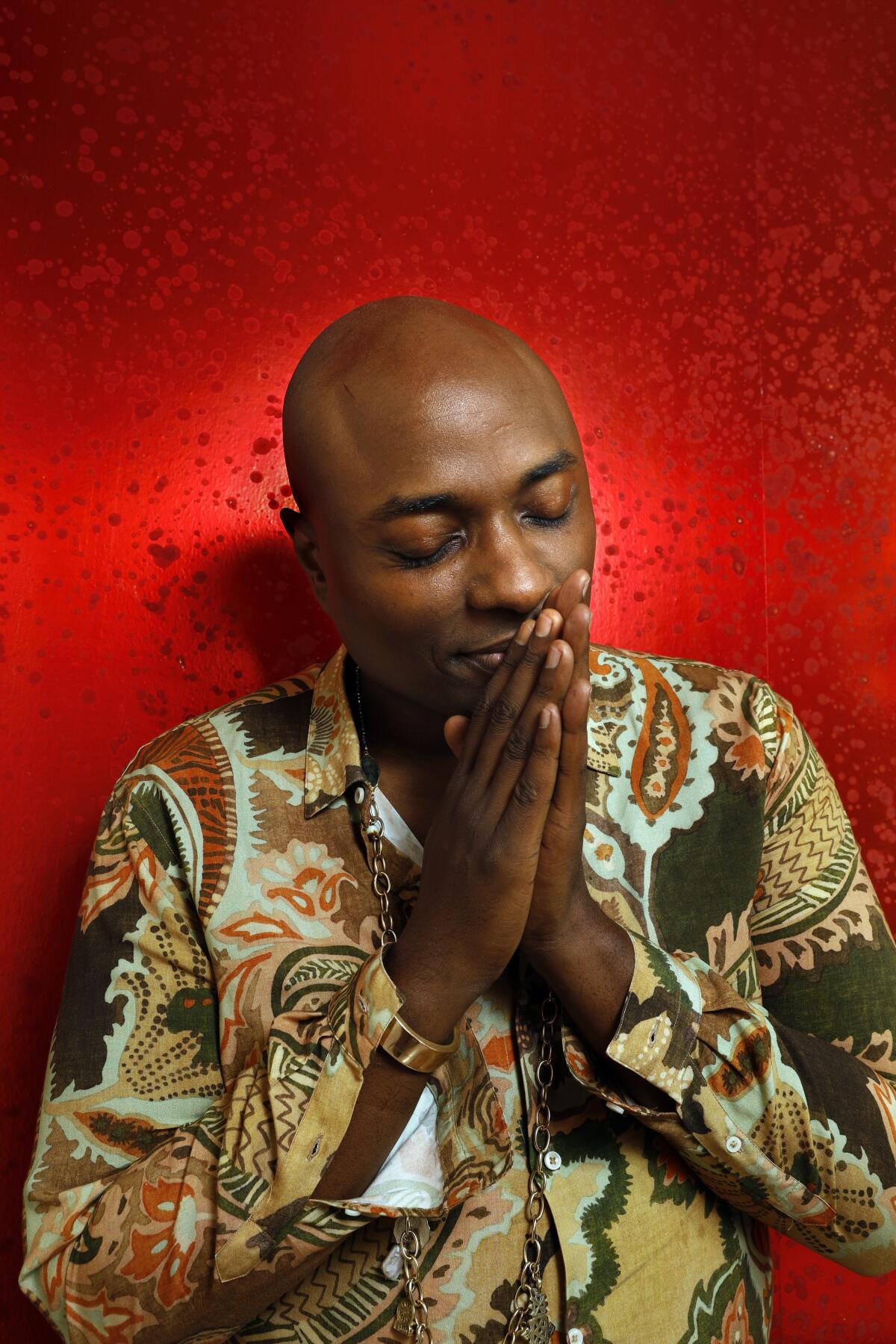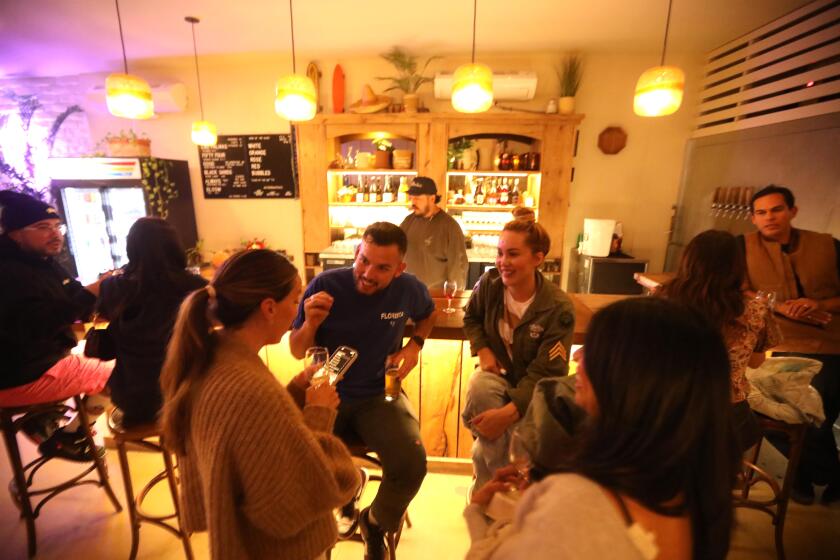Why shamanism is red hot right now: 12 things you need to know

He may look the part of a guru with his richly patterned robes and chunky crystal jewelry and celebrity clientele. But Durek Verrett — the sixth-generation Afro-Haitian shaman better known as Shaman Durek — insists he’s here to help people help themselves, with the recent release of his book “Spirit Hacking: Shamanic Keys to Reclaim Your Personal Power, Transform Yourself and Light Up the World.”
Of course, the “guru” tag seems to come with the territory when you are Gwyneth Paltrow’s “light in shining armor” and provide spiritual tune-ups to the likes of “Harry Potter’s” Bonnie Wright, “The Vampire Diaries’” Nina Dobrev and Insta-famous biohacker Dave Asprey. Verrett, a California native, has 145,000 followers on Instagram and was catapulted further into celebrity status this year when it was announced that he was dating Princess Martha Louise of Norway. But the 45-year-old self-professed spiritual counselor and podcaster says his true mission is to bring the ancient practice of shamanism to the mainstream, helping people to “get lit” by cultivating love and acceptance of themselves and others.
“At the core basic level of human nature, we all want to connect,” Verrett said in a recent interview at the Den Meditation in Los Angeles. “However, we have created so much discord within the way in which we separate [from each other]. We don’t realize that every time we separate, we destroy the fabric of all humanity.”
Shamanism’s philosophy of using connection and spiritual wisdom as a tool to help solve the planet’s problems is catching on with a younger generation that is more disconnected from traditional religion and increasingly worried about climate change, income inequality and what their future will look like, says Susan Mokelke, president of the Foundation for Shamanic Studies, based in Northern California.
“I really think that many are struggling around how can we help the world,” Mokelke said, “as well as the political and social issues we are facing.”
Jaime Meyer, a shamanic practitioner in Minneapolis and president of the Society for Shamanic Practice, says he has seen a spike in interest in shamanic healing, particularly among people who’ve exhausted therapy and still feel like something’s missing. “We take seriously,” Meyer said, “that people’s spiritual lives have a greater impact on their health than most people would say.”
Here are 12 things you need to know about Verrett, and shamanism:
1. There’s no denying that shamanism sounds a little woo woo to most, with shamans gathering their knowledge by achieving altered consciousness and communicating with the spirit world, using tools such as drums, rattles, crystals or even singing to clear “resistance in the form of fear or anger patterns,” according to the Society for Shamanic Practice website.
2. Shamanism has endured for over 40,000 years, practiced by indigenous peoples from the Amazon to Tibet to Siberia, as well as native Inuits of the Canadian Arctic. “The shaman’s point of view is that medicine is everywhere, and nature wants to help us,” Meyer said, a friendly philosophy he believes is comforting to many in these turbulent times.
3. Some shamans such as Verrett claim they were chosen for this work by the spirits. He recalls his great-grandmother Mamal, a shaman in Ghana and Haiti, first visiting him in his dreams when he was 5. Others interested in practicing, but without this connection, receive years of shamanic training, learning methods to reach altered states and connect with spiritual guidance and healing, Mokelke said. For many of these trainees, achieving an altered state to receive spiritual guidance is no simple task. For Verrett, during our recent interview, it appeared to come almost effortlessly, with him simply tilting his head as if he’s asking questions of someone in the next room.
4. Dave Asprey, the New York Times bestselling author who coined the term “biohacking” and introduced the masses to Bulletproof Coffee, is among shamanism’s believers. Asprey, who visited a shaman on a trip to Tibet (where he got the idea for his wildly popular butter-laden coffee from yak butter tea), says a lot of people call themselves spiritual healers and acquire some of the skills, but only a few such as Verrett seem to have a natural ability. “There are a lot of people who can dunk,” he says in the foreword to Verrett’s book. “There are a lot fewer Michael Jordans.”
5. To be sure, a lot of what Verrett does is impressive and hard to explain, including helping clients see underlying problems with family members or spotting the roots of an undiagnosed illness. He’s good at reading people and an astute observer, noticing, for example, the way I tapped my foot during certain parts of our conversation as well as how I was shifting around in my chair.
6. Verrett said it was an out-of-body experience while training in Belize that showed him his life’s mission. Verrett said he suffered a series of seizures and was at one point “technically dead.” He said he was in a coma for two months and on dialysis for eight years. Upon his recovery, he said he had a vision of the time of transition we are experiencing now, a period when humans will have to raise their consciousness and correct course here on Earth, a time he calls “the Blackout.”
7. As a culture, Verrett says, we’ve become more disconnected and entitled. Stress levels are higher, and more people are turning to alcohol, shopping, drugs, screens and social media as coping mechanisms. “We’re not going into nature, writing poetry, learning a new language, taking a cooking course or dancing,” Verrett says. “Learning new skills to add to your repertoire of being a human being is not valued in human culture anymore. What is valued is, ‘How popular are you?’”
8. Many in the spiritual community preach “love and light,” but Verrett says individuals need to be willing to delve into their darkness and self-destructive habits as a form of self-love, rather than kicking the can down the road and engaging in “spiritual bypassing” of this pain.
9. Although Verrett’s healing methods and spirit hacks in his book are somewhat unconventional, his message of approaching most situations from a place of love and acceptance is a familiar theme in self-help literature. To get the most of life, he says, we should approach our everyday encounters with the idea, “How can I find the greatest wisdom and love in this situation?”
10. Like many other spiritual leaders, he believes that our words — spoken out loud and internally — create our reality, like bricks in a path. If we believe life is hard, he says, the universe and our ego will create more challenges to support that narrative. Wouldn’t it be better, he says, to adopt the belief that “Life is hard; however, new opportunities and new experiences are showing up for me to see how things can be easy, and I have been welcoming it with open arms.”
11. Verret gets frustrated with spiritual leaders who suggest setting an intention. You can’t have an intention, he said, “unless you have attention. Put your attention somewhere, and the intention follows.”
12. And just as important to achieving that “lit” state he talks about frequently in his Ancient Wisdom podcast is being honest with yourself and others. “Being good gets you an apple pie,” he said. “Being truthful gets you the kingdom.”
More to Read
Sign up for The Wild
We’ll help you find the best places to hike, bike and run, as well as the perfect silent spots for meditation and yoga.
You may occasionally receive promotional content from the Los Angeles Times.










